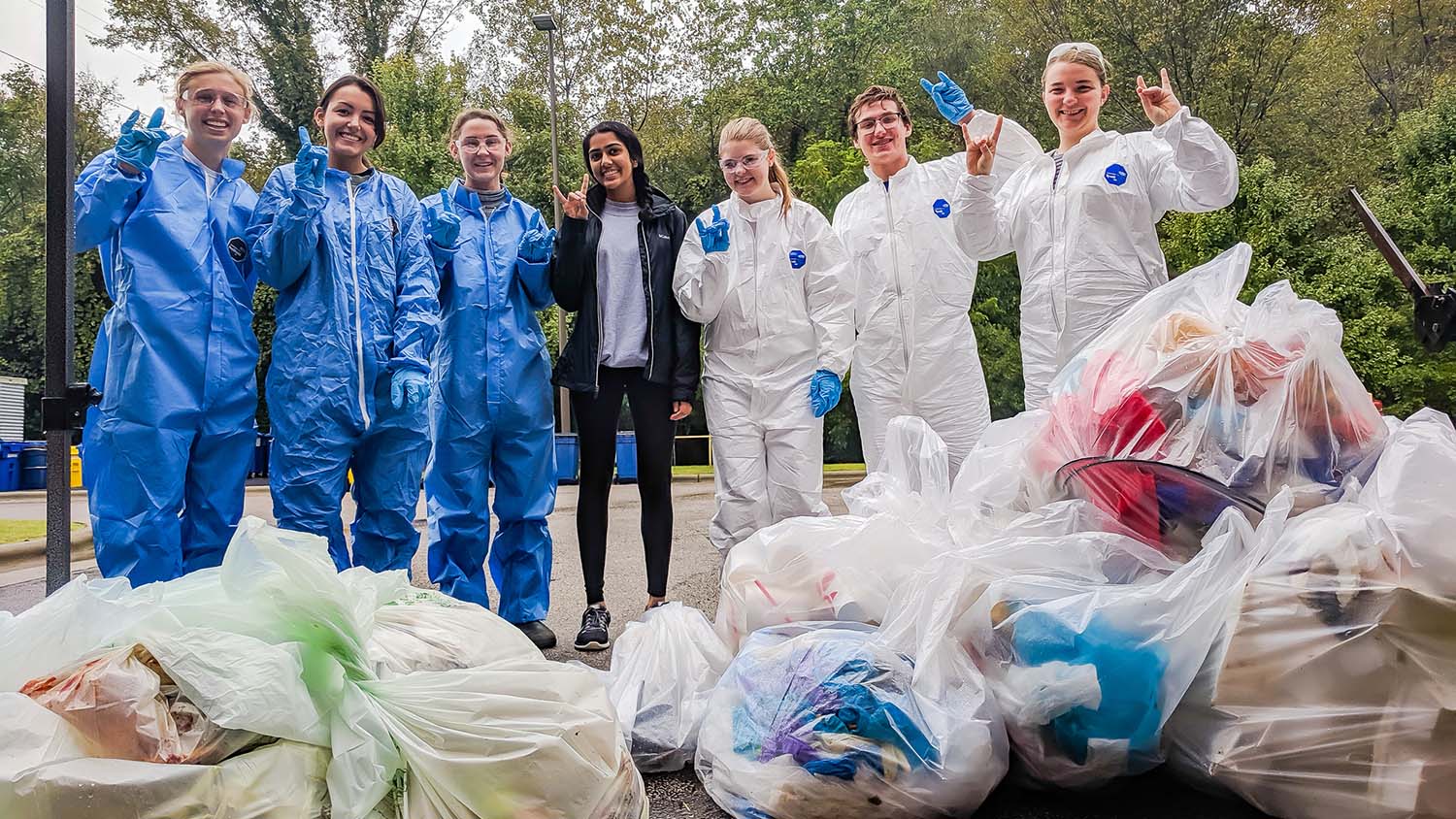Schaub Food Science Building Goes Zero Waste

With funding from a local grant, NC State’s Schaub Food Science Building has become the university’s latest facility to implement building-wide composting as part of an ongoing effort to divert campus waste from the landfill.
NC State’s Office of Waste Reduction and Recycling (WRR) was awarded a $7,800 grant from the Wake County Government to implement a Zero Waste Workplace program in Schaub Food Science Building, where there is potential to compost thousands of pounds of food products annually.
Schaub is home to NC State’s Department of Food, Bioprocessing and Nutrition Sciences, which conducts food product research. In the building, new food products are created and tested, creating a large stream of compostable waste. A preliminary study indicated that the Zero Waste Workplace program had the potential to divert 44% of the waste generated in the building. This waste includes compostable food waste, recyclable paper, compostable restroom paper towels and recyclable containers.
“Installing the Zero Waste Workplace program in Schaub makes sense as composting represents both the final and the beginning stages of food,” said Milannee St. Hill, WRR’s outreach coordinator.
Implementation of the Zero Waste Workplace program is multi-faceted. First, placement and size of landfill cans and recycling bins was optimized to reduce confusion. Next, compost bins were added in food lab spaces, breakrooms and restrooms. Because 75% of the building is lab space with unique waste streams, WRR customized signage to indicate which lab materials were compostable or recyclable.
In many of the labs, WRR found that zero waste initiatives were already in use, including take-back programs for pipettes and reuse programs for styrofoam coolers and bubble-wrap.
As part of the Sustainability Strategic Plan, WRR is striving to reach a 70% waste diversion rate for all of campus by 2022. Programs such as Zero Waste Workplace focus on source reduction, increasing recycling and advancing composting opportunities within campus buildings. Previous Zero Waste Workplace projects have successfully increased the recycling rate by 32%.
“WRR is excited to see how Schaub is actively participating in changing habits and procedures to capture food scraps and compostables in order to breathe new life into what was once waste,” St. Hill said.
- Categories: